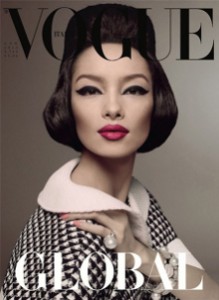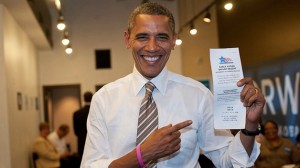There are only a few days left in the voting for the Women’s Media Center’s Social Media Award 2012 (our own Sady won last year!), so if you haven’t voted yet, I strongly encourage you to do so, and to spread the word through your networks. There are a lot of fabulous nominees on the list doing some fantastic work, but obviously I’d love it if you’d vote for me specifically, because, well, I’m awesome.
Five good reasons beyond my awesomeness to consider casting your ballot for me:
1. Increasing genderqueer and nonbinary visibility in the media. I don’t just focus on women and girls, but people of other genders who experience gender-based oppression, and a big part of my work examines gender and society beyond binary constraints. Even as a (relatively) high profile nonbinary person in the media, I’m routinely misgendered as a woman, despite the fact that information about my gender is readily available. While being recognised with an award might seem like a relatively small thing in the bigger picture, it would be an important step for nonbinary people, noting that we do exist and our voices are important.
2. Advancing intersectional models of media and justice. There are a number of nominees doing very important and highly intersectional work, obviously, but I cover a wide range of subjects and firmly believe that interconnected systems of oppression must be viewed in context, rather than being separated out and tackled individually. To name just a few of the things I talk about on a regular basis: rural issues; veterans/military issues; gender; queerness; environmental issues; politics; class; food policy reform; prison reform; body image; race; voting rights; disability (I’m one of the few nominees who covers disability issues at all); and trans topics. Liberation for some is justice for none and all of these issues must be considered holistically in the media to create a better world.
3. The media needs a place for sharp voices. People don’t always like what I have to say. Many of you don’t always like what I have to say. Probing deeply into issues, forcing people to think, and challenging social attitudes is hard, grueling work that’s often thankless, especially when members of your own movement are attacking you for pushing them beyond their comfort zones. The media needs more people like me, and it needs to receive a signal that people, like you, want more people like me.
4. Disability matters. Representation of disability in mass media and independent progressive media continues to be woeful. Only a handful of journalists openly identify with disabilities and cover disability issues, and disability coverage in both journalism and social media tends to be irresponsible, unhelpful, and sometimes actively hateful. We need more and better disability coverage from disabled people ourselves; casting your vote for me is a reminder that the best people to talk about disability issues are disabled people ourselves. We don’t need people to speak for us, we need a platform to speak for ourselves.
5. You know I’ll deliver a kickass acceptance speech.
So please, go vote, and tell your friends.
Thank you.

